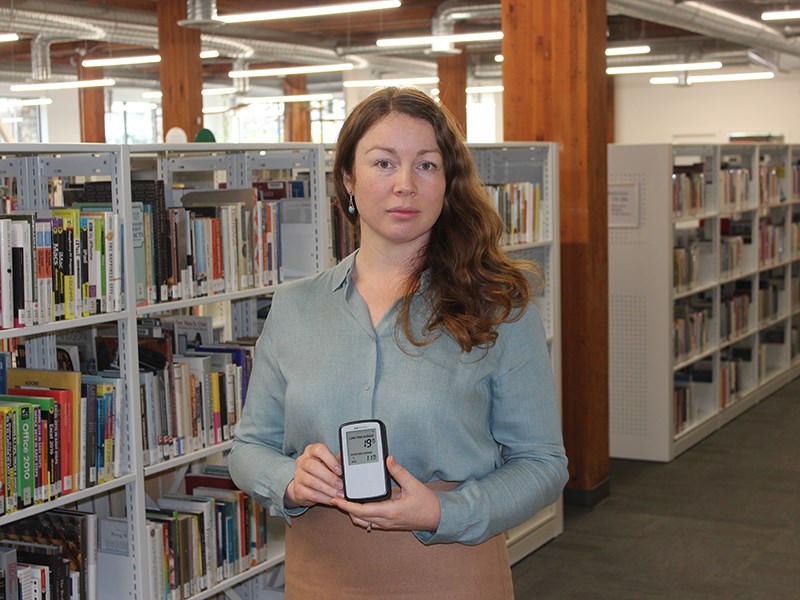Starting this week, local residents will be able to borrow more than books at Powell River Public Library. Radon detection kits will be available at the library desk free of charge as part of a program supported by Health Canada, BC Lung Association, Simon Fraser University and Norway-based tech company Airthings.
Chief librarian Rebecca Burbank said she is thankful the library can be involved in the project and hopes it will reach many households.
“I’m happy to be able to support the health-care community by providing access to these detection kits through the library,” she said.
Data collected will be used as part of a study at SFU to map radon levels on the North Shore and Sunshine Coast. Radon is a naturally occurring radioactive gas, caused by the breakdown of uranium rock in the environment. It can seep into poorly ventilated spaces where the gas concentrates.
Long-term exposure to high radon levels can damage the lungs and cause lung cancer. According to Health Canada, radon kills 3,200 Canadians a year and is the second leading cause of lung cancer after smoking.
The detection devices on loan are about the size of a mobile phone and have a digital display that shows readings after 24 hours, however, they need at least seven days to provide an accurate reading.
Radon detectors are recommended for people who live in dwellings that are in contact with the ground, such as single-family houses, duplexes, townhouses and basement suites. However, poorly ventilated apartment buildings and other elevated buildings have also shown high radon levels. The detector should be placed in rooms at the lowest level of the home where people spend a lot of time.
“I hope the work done by Simon Fraser University and the BC Lung Association will help to raise awareness around this hazard,” added Burbank. “Preventing cancers and increasing the health of the people in our communities helps us all live better lives.”
For more information, go to vch.ca/public-health/health-topics-a-z/topics/radon.



